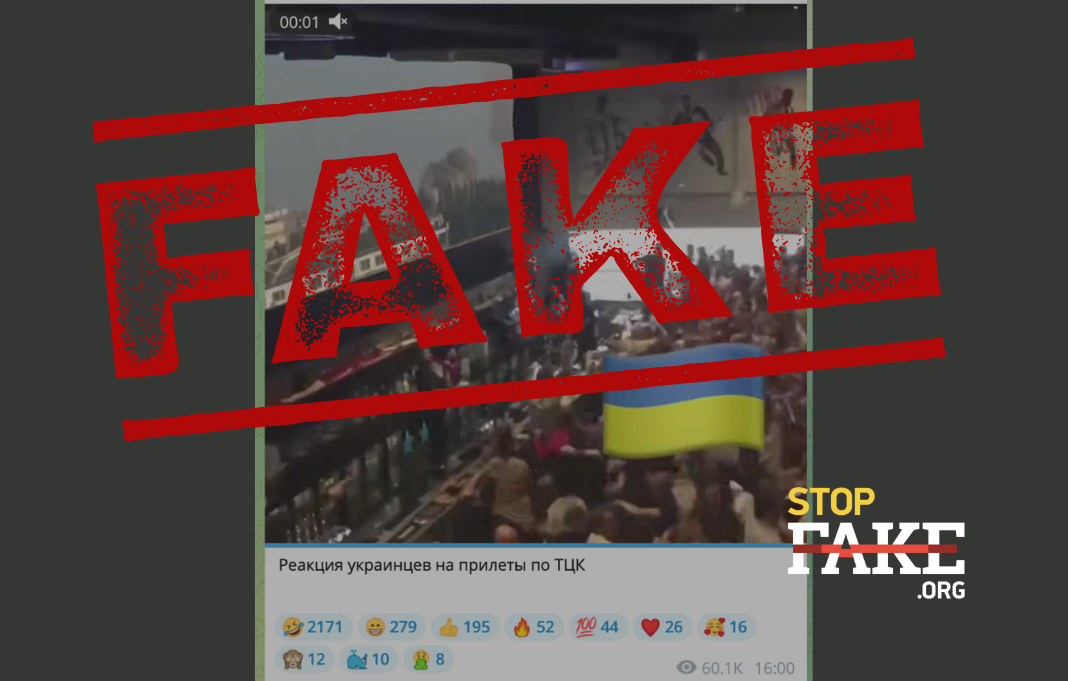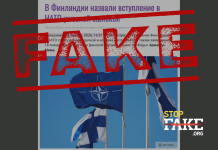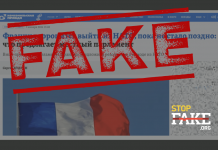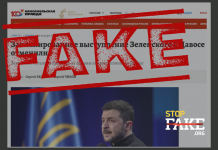Claims of “widespread support” for attacks on Ukrainian enlistment centers are based on isolated online comments that could easily have been generated by bots or provocateurs. These do not reflect the broader public mood in Ukraine. A video circulated by Russian media to depict Ukrainians allegedly celebrating a strike is, in fact, a well-known internet meme known as “Bar Goes Wild” and has no connection to events in Ukraine. The narrative is part of a broader disinformation effort to distort reality and erode trust in Ukraine’s defense institutions.
Russian Telegram channels are actively mocking the false narrative that Ukrainians have supposedly begun “reporting” the coordinates of Territorial Recruitment and Social Support Centers (TRSSCs), enabling Russian forces to target them. To bolster this disinformation, some accounts have circulated a video that allegedly shows a crowd celebrating a strike on one such center.
Claims that Ukrainians are allegedly celebrating Russian strikes on recruitment centers and actively submitting coordinates for future attacks originate primarily from Russian war correspondents and anonymous Telegram channels – an immediate red flag pointing to deliberate disinformation. These narratives aim to fabricate the illusion of widespread public discontent in Ukraine with government policies and conscription efforts. More dangerously, they are used to justify Russian attacks on civilian infrastructure by portraying them as “legitimate targets” supposedly identified and endorsed by Ukrainians themselves.
As so-called “evidence,” Russian war bloggers rely on isolated social media comments that could easily be posted by bots, fake accounts, or provocateurs. Selectively sharing screenshots from comment sections or forums is a common disinformation tactic designed to manufacture the illusion of widespread public sentiment. In reality, such claims are rarely representative. Specially created accounts and bot networks are often deployed to simulate the appearance of “mass support,” amplifying narratives that have little to no basis in actual public opinion.
Another so-called “proof” used by Russian propagandists is a video allegedly showing Ukrainians celebrating a drone strike on a Territorial Recruitment and Social Support Center (TRSSC). In reality, the footage is taken from the widely known internet meme “Bar Goes Wild.” The original video was filmed in a sports bar in Bristol, UK, and first went viral in 2016. It shows patrons erupting in cheers while watching a sports broadcast. Since then, the clip has been endlessly repurposed in meme culture, with unrelated headlines and commentary overlaid to simulate crowd reactions. Its use in this context is a deliberate attempt to deceive and manipulate public perception.
Ukraine’s Center for Countering Disinformation has confirmed that the spread of false narratives about Ukrainians “supporting” strikes on recruitment centers is part of a coordinated Russian information campaign designed to disrupt Ukraine’s mobilization efforts. In addition to disinformation videos and fake social media posts, authorities have identified Telegram bots allegedly created to collect the coordinates of Territorial Recruitment and Social Support Centers (TRSSCs). In reality, these bots are another propaganda tool—used to harvest personal data, which can later be exploited for intimidation, blackmail, or psychological pressure against Ukrainian citizens.
StopFake has previously exposed numerous false claims promoted by Russian propagandists aimed at discrediting Ukraine’s mobilization efforts. These include stories such as Fake: Ukrainians Without Updated Recruitment Data Are Denied Medical Care, or Fake: In Ukraine, Men Run Away from Military Conscription with Easter Baskets – Video, and other similar fabrications.





